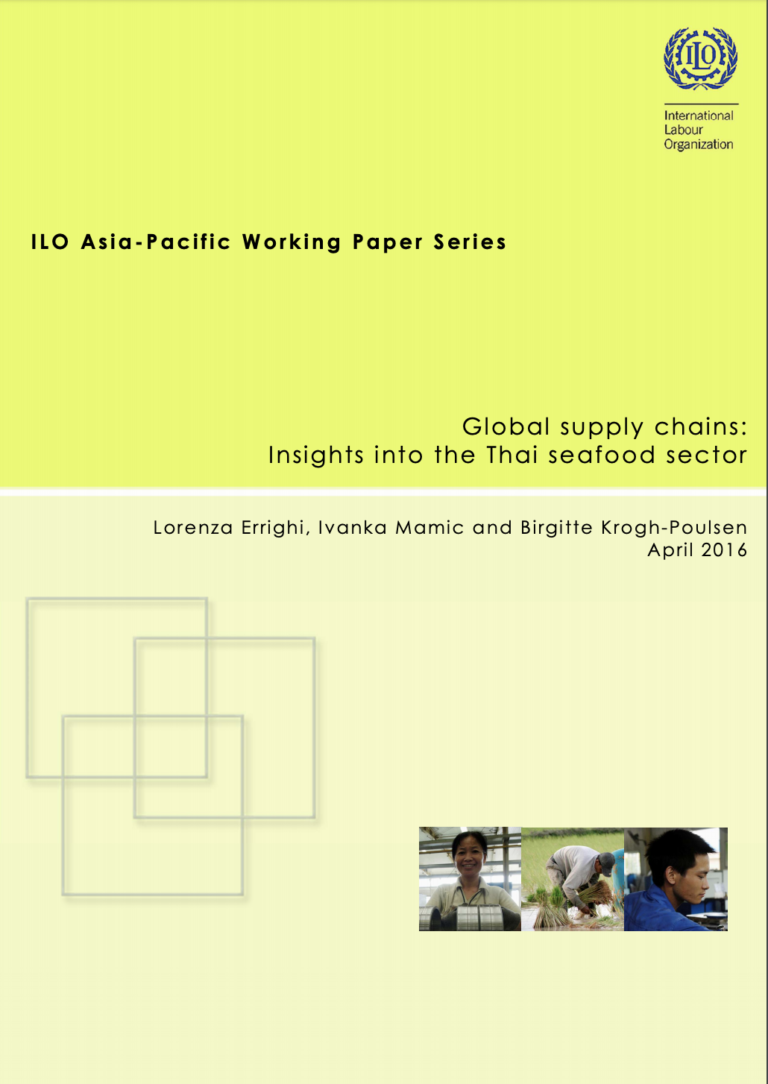Part of the International Labour Organization (ILO) Asia-Pacific Working Paper Series. Written by Lorenza Errighi, Ivanka Mamic, and Birgitte Krogh-Poulsen.
In recent decades, the Thai seafood sector has expanded on a global scale by using foreign labour and inputs, while exporting processed and semi- processed seafood products to the largest economies including the United States, the EU and Japan. Growing international market shares and economic development have been achieved through the attraction of foreign capital, the achievement of good sanitary standards and investment in appropriate infrastructure in the sector. Therefore, the Thai seafood sector is an example of economic upgrading through participation in global supply chains (GSCs). However, while the sector is a key contributor to growth and employment for Thailand, social upgrading has been limited to levels and processes in the supply chain where there is a direct interaction with international buyers and more exposure to consumers. Severe decent work deficits have been documented in fishing and pre-processing activities, including the use of forced and child labour. Such deficits can be attributed to weak governance, which has been mostly related to deficiencies in public enforcement in the sector. By illustrating key economic trends, decent work challenges and public and private governance in the Thai seafood GSCs, the case study presented in this paper is an example of how social upgrading is not always tied to economic upgrading, if governance gaps persist. It is also an illustration of how governments may seek to improve legislation and enforcement in GSCs.

